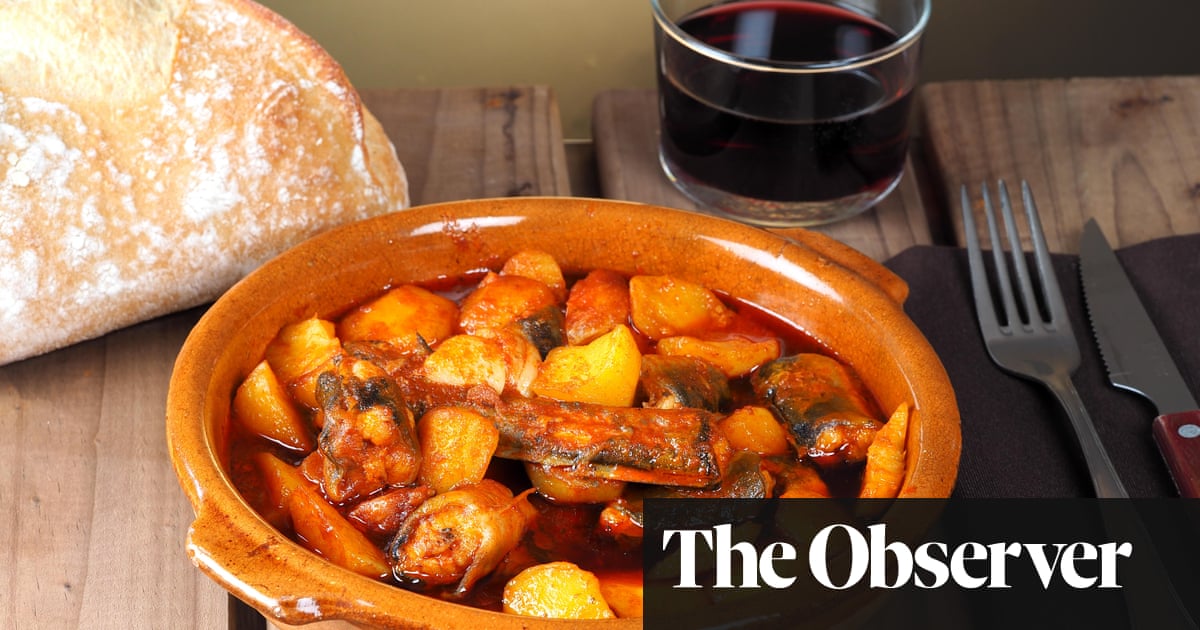
Everyone at the Cubbyhole has an origin story.
Mona Williams was 21, queer, and had been kicked out by their family when they first arrived at the quaint little lesbian bar on a street corner in New York’s West Village. They had Googled “lesbian bars in New York” and found themselves outside the bar a few hours later, alone and not knowing what to expect.
“I got really dolled up, wearing this leopard-print dress. I remember being really nervous. I was like, ‘I don’t know anyone here. How am I going to talk to people?’” they recall.
But it wasn’t uncomfortable for long.
“I walked in and was surprised by how many freaking lesbians there were in one spot,” Williams laughs. They even remember their first bartender. “Debbie was her name. She was a dream, this little thing – shorter than me! She made me feel so welcome. She was like, ‘I see you there sitting all alone. What can I get you?’”
Williams, who was raised a Jehovah’s Witness, had never celebrated a birthday before – so the Cubbyhole staff organized their first ever party there.
There are as many stories similar to Williams’s as there are Cubbyhole regulars. Daniel Reiche, one of the bartenders, remembers his grandfather paying him a visit on his very first shift 10 years ago. “He sat there watching me, laughing with the customers saying, ‘Look at my grandson at the ladies’ bar!”. And all the way back in the 1980s, the actor Jane Lynch, who was fresh out of grad school, remembers “looking very straight and very midwestern cornfed” but trying to blag confidence as she walked in anyway.
In New York, an overcrowded city with a lot of lonely people, you might live in an apartment building for years and never learn your neighbors’ names. But at the Cubbyhole, life is different.
“It’s a wonderfully warm kind of place,” says Lisa Menichino, the current owner. On any given night, you might wander in on your own and leave with new friends.
Stitched together, those stories make up the canvas of the tight-knit community created in one of New York’s three remaining lesbian bars. It’s a place where people find their “chosen family” – a beautiful concept, but also a reminder of how many are displaced just because of their sexuality.
In March last year, the Cubbyhole closed for the first time in its existence. Menichino had kept it open during 9/11, through hurricanes and blizzards. But when the pandemic caused a citywide shutdown, she had no choice but to close.
Patrons didn’t just stand to lose a bar – they stood to lose their history, their safe space and a place that felt like home.
When I first meet Menichino in May last year, the Cubbyhole is a shell of itself. The festive ceiling, from which hundreds of pretty ornaments hang, feels awkwardly juxtaposed in an empty, quiet bar. It is eerie.
On the wall is an impression of the Cubbyhole in better times, which shows a jam-packed bar, with people laughing, talking and dancing, pressed side by side.
Menichino has taken to rearranging the chairs every morning, messing them up as if the place had been busy the night before, even though it has not seen a single customer in three months. She finds herself missing even the things she used to hate: the cigarette butts in the flower pots outside she’d have to clean every morning; people spilling drinks and throwing up in the bathroom.
“I miss it, I really do. I love this bar. It’s so much more than just a bar. Tanya [the previous owner] used to say ‘it’s a living breathing thing,’ and I feel that way too,” Menichino says.
Her clientele obviously feel the same way: while many bars and restaurants floundered during the pandemic, more than a thousand people donated to the Cubbyhole’s GoFundMe page, raising almost $80,000 to keep the staff paid. It wasn’t enough to cover the $30,000 a month for the bar’s basic costs – staff, rent, insurance – but it was something.
“I get emotional because so many people were in the same boat and didn’t receive that help. I thought: what a privilege. It was overwhelming, the kindness and the love,” she says.
Soon after, messages started pouring into Menichino’s inbox, about various milestones that had taken place in her bar: “I met my husband”; “I met my wife”; “I had my first kiss”; “It was the last place I was before my partner died.”
She got silly missives too. One read: “You know the lamp with the giraffe on it, on the table that you had three years ago? Well, it was me that stole it. Sorry, please reopen!”.
One year ago, Menichino was unsure if the Cubbyhole would ever be the same again. But the long fight that kept it open is astounding.
The Cubbyhole first opened as DT’s Fat Cat under joint ownership in 1987, and switched to its current name in 1994. It was the brainchild of Tanya Saunders, a maverick who liked to decorate its ceiling with mementoes. Customers have adopted this tradition and now bring trinkets from all over the world to pin to the ceiling: a little fish from the Turks and Caicos; a scuba diver from Mexico; a bicycle from Paris. An obituary of Saunders still hangs on the wall, and a tree outside the bar was planted in her honor with a plaque to remember her by.
Saunders wanted to open a lesbian bar that was open to all no matter their sexual orientation. A child refugee from Nazi Germany, she had come of age in New York in the 1950s, when police raids on gay bars were commonplace.
When the 1960s ushered in a law that made it illegal to sell alcohol to gay people in bars, Saunders joined the underground gay scene, socializing at speakeasy-like events where gay people could dance and drink.. Somebody would always be watching out for the police, and if the police came, the men and women would start dancing with each other to avoid getting caught.
Saunders’s family wouldn’t accept that she was a lesbian, so she and her partner married two gay men who lived in the apartment upstairs. They acted as beards for one another and stayed lifelong friends.
By the 1980s, Saunders was in good company – there were 200 lesbian bars in the US. Today, there are just 21.
“We’re like an endangered species,” says Menichino. “Lesbian bars were the connection between lesbians just celebrating our identity and visibility, and our contributions to the gay rights struggle. As they disappear, so does that,” she says.
“Some people might think they understand the struggle, but unless they’re talking to someone who has been there and knows what it was like to be ridiculed and just have to ride it, it’s not the same. We need to survive, because we need to have a voice.”
When I visit the Cubbyhole during its first official grand reopening, the mood is radically different. Due to Covid, customers have to make a reservations to get in and Menichino has had to create a system to prevent regulars from hogging them up – meaning only 30 customers at a time, with table service. It feels antithetical to everything the Cubbyhole was: loud, open, free.
“It’s like there’s a gigantic stinkbomb that’s been set all over 2020,” says Menichino – who was due to be married in 2020, but had to call it off. “We are trying to do the outdoor thing, but there is literally a list of 15 pages of rules you have to follow,” she sighs. She is living on zero income, her staff just about paid through donations.
When the greatest snowfall in the last decade hit Manhattan in December, Menichino had no choice but to close. She also finally decided to accept help.
Once torn up about the decision of whether to take donations, Menichino finally started to say yes to all she was offered. A local artist painted an impression of the Cubbyhole to be used for merchandise and soon, locals were donning Cubbyhole T-shirts, hoodies and vests, raising tens of thousands of dollars.
A band of lesbian carpenters offered their services free of charge and built an outdoor seating area. A local artist painted it green to match the shopfront, and a group of plant artists adorned the structure with beautiful fake flowers, making sure the outside area matched the mood of the inside.
Andy Cohen, America’s first openly gay late-night talkshow host, and a longtime patron, dropped by on opening night and encouraged people to come on social media. Influencers posted TikTok videos about the bar.
“It’s just taking care of your family, that’s what I see it as,” says Candace Hewitt, who organized the carpenters and has been coming to the bar for 18 years.
“What is special about this place is that people are always picking up after themselves,” says Ji Hae Byun, the plant stylist. “You see people going around picking up other people’s cups to take care of the place. If we’re going to come into this place and take up space, we’re also going to give a helping hand to keep it clean and running. What we did was just part of that.”
Having had a particularly hard time coming out to her parents that January, Byun had reached out to Menichino because she recognized the importance of a place where people can feel safe even if things aren’t good at home.
“People were so grateful we were reopening. It was unbelievable,” says Menichino. “I have worked here for 20 years and I feel like I’m just a cog in its operation – it belongs to the community – that’s how attached to it they are.”
On 22 June, the weekend before Pride, the Cubbyhole is both unrecognizable and the same it ever was. Menichino tells me that she sometimes wants to cry when she sees people lined up around the corner, waiting even after last call just in case they get to see the magic unfolding inside.
Even with the owner by my side, I can barely find a place to sit for the first half an hour. People are crammed elbow to elbow, laughing, drinking, kissing.
“Someone asked me at what point I would feel happy again,” Menichino says. “I said, I want to see people dancing in one corner of the bar; a couple kissing in the other; a bar fight happening on one side and someone spilling their drink all over themselves. That’s when I’ll be happy,” she said.
She tells me about a recent time when she found a patron throwing up on herself as she left the bathroom. “Usually, I would be disgusted. But I said, ‘It’s fine! Let’s get you a napkin!’
“It will wear off soon enough,” she laughs. “But right now, I am happy.”












